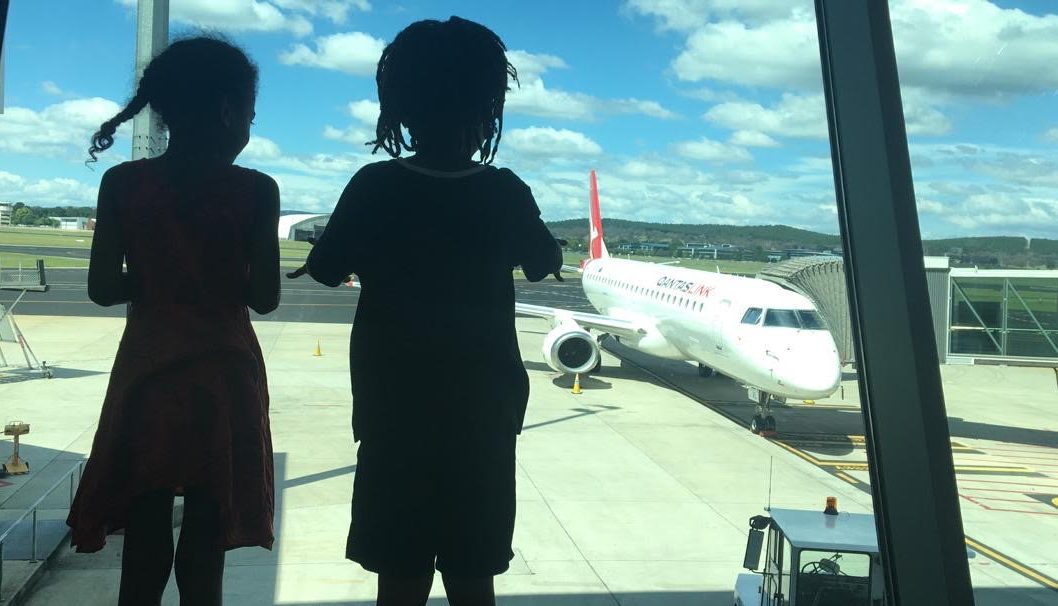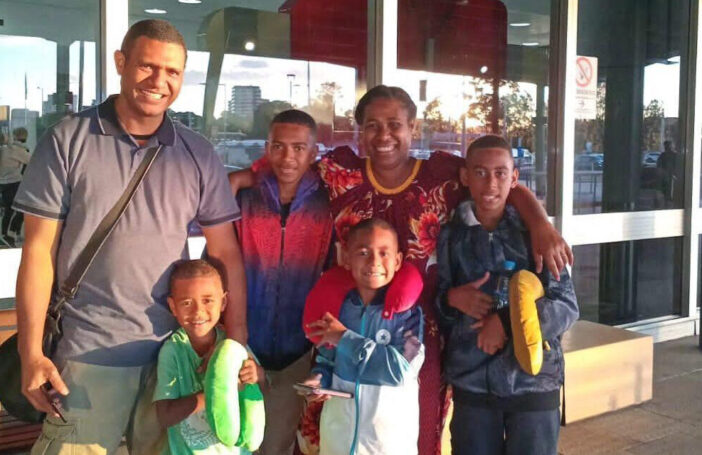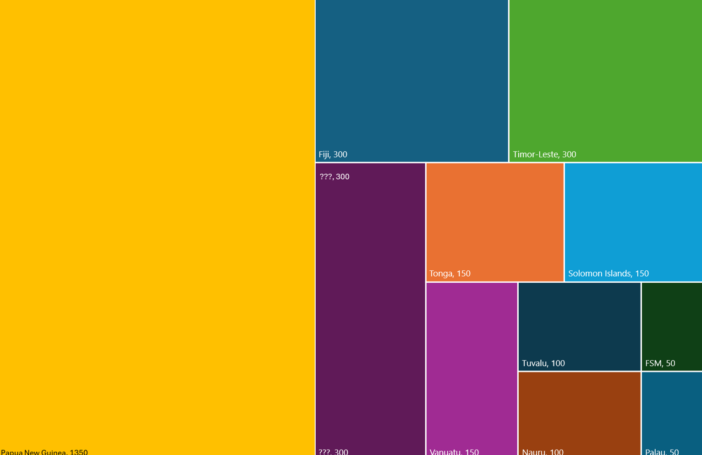Notwithstanding uncertainty around 300 unallocated visas, and disappointing results in Palau and FSM, the first Pacific Engagement Visa ballot was a stand-out success. Pacific-wide, more than 56,000 registrations were received by the Pacific Engagement Visa (PEV) ballot for some 3,000 PEVs. (To remind the reader, the PEV is allocated by ballot to reduce risks of brain drain and to equitably distribute visas in a situation of excess demand.)
No doubt, increased access to decent job opportunities, better healthcare and education benefits triggered high interest. All in the hope of securing a better life for individuals and their families in Australia.
Fiji (30,512) recorded the highest number with more than 50% of PEV registrations. PNG came second with over 8,000 registrations, six times its quota of 1,350 PEVs.
This is an impressive result for PNG in the space of three months. Unlike in Fiji, where migration seems to have become a national habit, PNG has no tradition of out-migration. In fact, PNG has one of the lowest shares of remittances to GDP in the world, and only a tiny diaspora, with fewer Papua New Guineans in Australia than Samoans or even Cook Islanders. PNG’s participation in the Pacific Australia Labour Mobility (PALM) scheme has also been disappointing. As of 31 July 2024, of the total 31,950 PALM visa holders in Australia, 1,995 came from PNG or only 6%, much less than Fiji (6,365), Vanuatu (5,950) and Solomon Islands (4,940).
And yet, the PEV ballot shows, there is a lot of interest within PNG for migration, and furthermore for permanent migration.
As more Papua New Guineans secure passports and the PEV becomes better known, the number of PNG PEV ballot entrants will increase exponentially over the coming years. The current quota given to PNG under the PEV of 1,350 is completely inadequate and, at 0.01% of the population, only of symbolic value at the national level.
What should Australia do? An incremental increase in the quota PNG receives under the PEV will benefit a few hundred more Papua New Guineans but is neither here nor there at the national level. Australia needs to be braver and make a permanent shift to its migration policy by establishing a specific permanent residency pathway for PNG separate from the PEV.
New Zealand shows how this can be done. Instead of a single, Pacific visa, New Zealand has two: the Samoan Quota Resident Visa exclusive for citizens of its former colony of Samoa; and the Pacific Access Category (PAC) which provides visas for other Pacific countries to which New Zealand has been historically close. In fact, more visas are provided to Samoa (1,100) than all the PAC countries put together: Fiji and Tonga normally get 250 each, Kiribati and Tuvalu 75 each (numbers have changed to make up for the visa’s suspension during COVID).
Following New Zealand’s example, Australia should introduce a PNG Engagement Visa alongside its Pacific Engagement Visa. The PEV could continue or expand, but PNG would be taken out and given its own visa, the PNGEV.
What should be the PNGEV quota? The Samoa model mentioned earlier would suggest a quota of around 50,000 (based on the ratio of PNG’s to Samoa’s population). Perhaps one-fifth of that amount — 10,000 — might be a realistic starting point, while still large enough to make a difference at the national level in PNG. Recall that some 20,000 applied for the PEV (primary applicants plus their family members). Many more will apply next year.
Such a move would be highly appropriate for two countries that are “joined at the hip”, as PNG’s Prime Minister James Marape put it in his address to the Australian parliament earlier this year. It would be appropriate given their shared military history, symbolised by the Kokoda Track. It would also be appropriate given PNG’s status as a former territory of Australia and the shameful White Australia policy that kept Papua New Guineans out of Australia for decades. And it would be appropriate given Canberra’s concerns about Chinese influence in PNG.
In terms of timing, the introduction of the PNGEV would be appropriate now because this day next year will be the 50th anniversary of Papua New Guinea’s independence. The PNGEV would be a practical initiative to right the wrongs of the past (the White Australia policy) and to belatedly welcome Papua New Guineans to Australia’s shores.
Much better than a new National Rugby League team, or more aid, the PNGEV would supercharge people-to-people links between the two countries. It is also no exaggeration to say that it could change PNG’s destiny. Papua New Guinea is not on a positive trajectory. According to a recent survey of PNG university students, for every 5% who thought PNG was heading in the right direction, 95% thought the country was heading in the wrong direction. Foreign aid cannot bring about fundamental change. Even PNG’s politicians seem helpless to change the path the country is on. Only more integration, more international exposure and ultimately more public demand can change PNG’s national trajectory. If Australia really wants to make a difference in PNG, it needs to think bigger, and think PNGEV.
Note: The PALM numbers mentioned have been adjusted slightly to give correct figures for 31 July 2024.





Hello Natasha, I think your article with Prof Howes touches upon a bigger picture that runs deeper than seasonal employment opportunity.
I refer to the Papua New Guinea Governor General, Sir Bob Dadae’s 49th independence address to the nation (https://www.postcourier.com.pg/gg-initiates-reality-check-for-nation/) in which he is reported by the Post Courier, to have said,
“It is utterly disheartening to read in the dailies and see in the electronic media, almost every day, the total chaos, mayhem and madness in every province and communities of our country.”
I cannot remember seeing such a direct and forthright statement to the ruling elite from such a prominent person before. His words by the norms of PNG protocol represents an earthquake.
With a population of 11 or maybe 13 million people, I believe Papua New Guinea is where Australia’s focus should be. Building genuine trust and opening up civil society and nation building opportunities for PNG citizens in Australia and New Zealand has become critical.
Sir Bob also said,
“We need to transform our economy to create economic opportunities and empower our rural economies.”
He is right. In relation to this I believe we need a quantum shift in focus from primarily institutional strengthening towards community economic empowerment and tailoring some of our markets to facilitate the undoubted opportunities that exist here.
The notion that with more assistance PNG government mechanisms will deliver has proved at best to be a misnomer, for many a disaster and the many can tell you why.
Given the cultural diversity (hyper regionalism) and the results of the first half century I believe there is a compelling argument to focus more support directly on civil society entities and local solutions.
Enable them to participate in appropriate economic activity and service delivery. I fear that a failure to make a step change towards these goals will result in the further erosion of social cohesion, increase inequity and the fragility of the nation.
I am convinced that with larger players now peddling alternative visions and wooing willing listeners the time to build greater trust and act on what the PNG population has been telling us, is now.
Tai Nani
Hello Natasha, I do like this idea and the two littlies looking out over the tarmac at Jacksons. Reminds me of my own children doing the same thing at that age.
I would like to throw an idea into the ring. I know a few PNG health professionals with international qualifications to boot who work in PNG for the smell of an oily rag while those ostensibly doing a similar job in Australia earn a king’s ransom by comparison.
With no desire to start a “brain drain” I propose the following. Subject to passing an accreditation exam, PNG health professionals (including nursing officers and midwives) be offered a six month on, six months off visa to work in the same or similar sectors in Australia (and New Zealand).
Of necessity it would have to start small so as not to exacerbate the huge shortfall in qualified staff in PNG. But over time become the modus operandi for many. This would enable them to earn significant income every year while still contributing directly to the needs at home. The potential benefits as I see it are many and flow both ways.
Apart from a boost in the personal income it could expose participants to levels of service delivery, particularly in the primary healthcare sector that many I believe would strongly advocate for upon their return home.
It would be expected to significantly stimulate the uptake of health sciences training in PNG where at present a very large shortfall in training capacity and health professionals exist.
If it was an ongoing arrangement, I envisage Australian teaching institutions establishing satellite or partnership arrangements with counterparts in PNG, an arrangement that would benefit all parties, particularly in primary healthcare services where the greatest needs exist.
In total the benefits to both countries would be significant. I would suggest that Solomon Island and Vanuatu health professionals might also wish to participate in such a scheme which ultimately would include other sectors.
Not unlike part of the vision that underpinned the creation of the European Union, I foresee our nearest neighbours benefitting in tangible ways on their own terms while we for our part would benefit greatly in many ways from becoming more neighbourly.
Hi Stephen,
Thank you for suggestion. I agree with the mutual benefits you’ve highlighted.
This is an idea that I’ve considered particularly under the PALM scheme short-term stream (up to 9 months) that would realise circular mobility.
It would re-position PNG toward strategic skills transfer and capacity building of key twinning industry sectors generating “brain gain”. So when our people are “off season” from Australia, they return to PNG and re-integrate into the same industry/partner employer. such an offshore arrangement stipulated in an employment contract over a 4 year period provides incentive and achieves retention if there is employer-buy in. Ultimately achieving circular mobility and wins for all stakeholders.
For now in PALM, PNG and other participating countries only supply the workforce to Australia where they determine workforce gaps exist in identified sectors. Currently, in the health field only age care is offered under the PALM-long term, and it has its own pro’s and con’s.
Nonetheless, our shared ideas are worth exploring further. Tenkiu tumas.
Proud to hear about establishing partnership arrangements with counterparts in PNG.
I am an Health Administrative Officer of which I am keen and much interested about the opportunity for PNG Health Professionals.
Please share more of your thoughts.